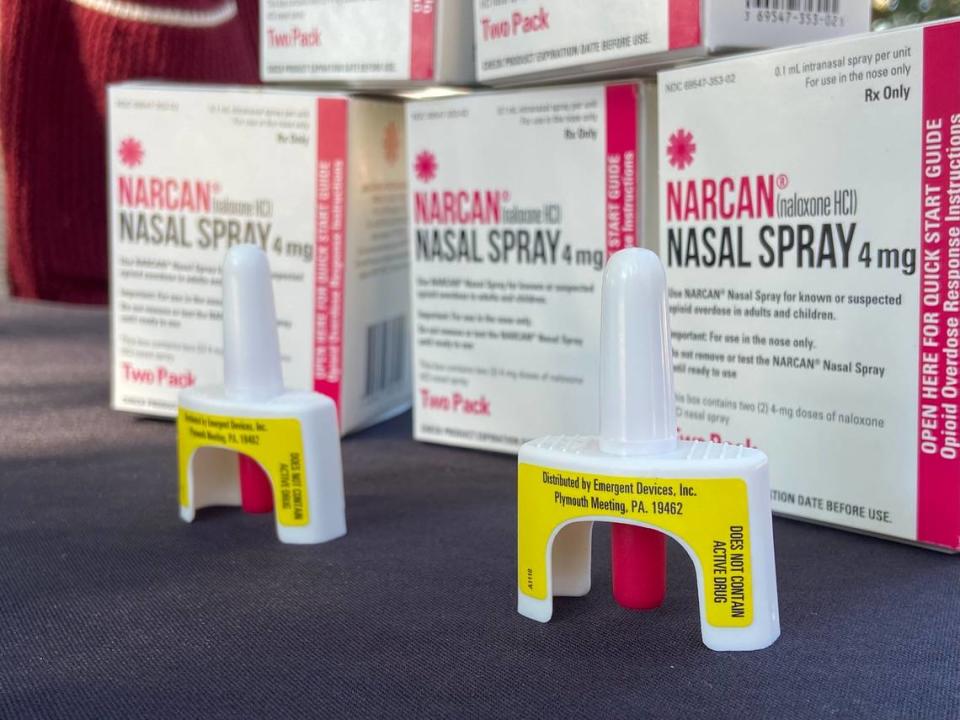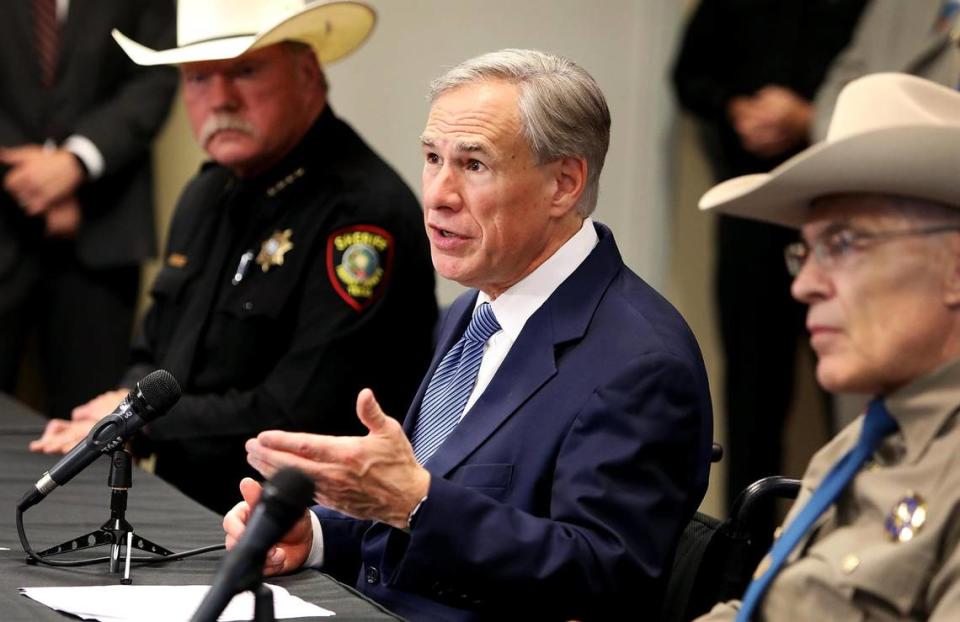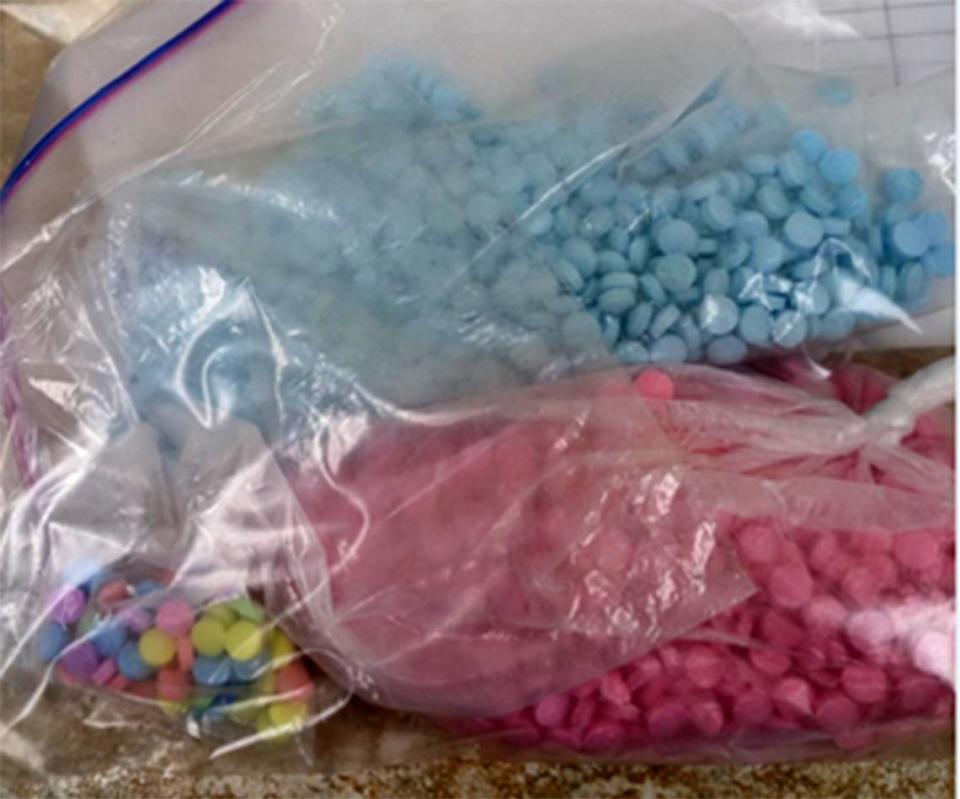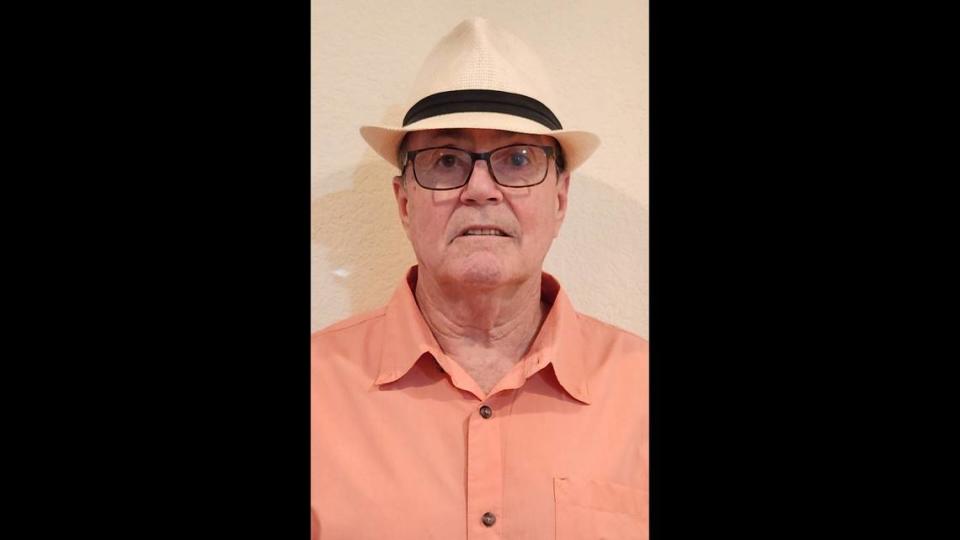Abbott’s plan to fight fentanyl overdoses won’t reach drug users. Here’s a better way | Opinion
- Oops!Something went wrong.Please try again later.
Gov. Greg Abbott’s response to the opioid overdose epidemic in Texas is insufficient and ill-considered. There’s a better way to save lives.
Abbott’s $10 million program, called One Pill Kills, creates a fentanyl public awareness campaign and funds the distribution of 20,000 doses of intranasal Narcan. That’s the brand name of Naloxone, a medicine used to quickly reverse the sometimes fatal effects of fentanyl, heroin and other opioids.

Fentanyl, a synthetic opioid, is 50 times stronger than heroin and is a leading cause of death among American adults. Last year, fentanyl killed more than 2,100 Texans, and deaths have increased 500% since 2019, according to the Texas Department of State Health Services.
Texas, however, trails the nation in per-person state spending on mental health and substance abuse treatment, as well as in the number of treatment centers.
A dose of injectable intramuscular naloxone costs $1 to $25 a unit, while a kit of two doses of Narcan delivered through a nasal spray can cost more than $125. Even at the state’s negotiated rate of $75 a kit for intranasal Narcan, it is far more cost effective to purchase the injectable version and train first responders how to use it.
The governor plans to send Narcan doses to sheriff’s departments in the state’s 254 counties, allotted by county size and population. But drug users try to avoid law enforcement at all costs for fear of getting locked up. How many do we think are going to come forward and admit they are using opioids and ask a sheriff’s deputy for Narcan?

A person addicted to drugs should be medically detoxed and receive drug treatment. The further we push drug addicts into isolation and darkness, the more their drug abuse can end in overdose and death.
Stigma is a big factor driving the overdose epidemic. We threaten to lock drug users up for decades, and then we’re surprised when they won’t come forward to seek help. If they approach a social-service agency and are honest about their drug use, they probably will not be eligible for food assistance, housing, childcare or employment.
Drug-taking preferences change, and so does the need for solid epidemiological information. Fentanyl poses particular concerns not only because of its lethality but also due to the knowledge and attitudes of the users and treatment personnel.
We need targeted prevention programs and public information on fentanyl. But there have been few studies about the epidemiology of fentanyl in recent years, and street studies about “drug liking” and user knowledge are scant. Effective overdose reduction programs would react to the perceptions and behaviors of users themselves.

There is a better way to create access to Narcan in Texas. Distribute the life-saving drug to those affected by overdosing — drug users, peers, family members and community members, not cops. Offer education to users and those around them, as well as the general population, on how to recognize, respond and evaluate an opioid overdose situation.
“We certainly need the life-saving kits,” said Jane C. Maxwell of the Addiction Research Institute at the University of Texas at Austin School of Social Work. “However, we need them in the hands of people who work with drug users such as EMS, harm reduction outreach teams, and drop-in centers so they can get the kits to those affected by overdosing.”
Provide common-sense solutions such as medication-assisted treatment that addresses the disease of addiction with counseling and behavioral therapies to treat opioid-use disorder. We cannot simply lock this problem away.
Charles Thibodeaux is a licensed chemical dependency counselor in Austin and co-founder of the Texas Overdose Naloxone Initiative.


